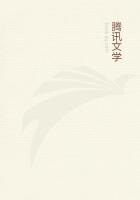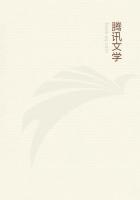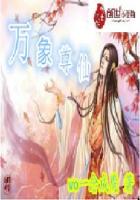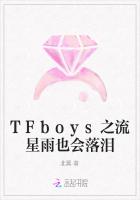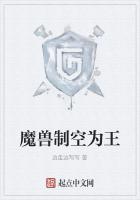Hellanicus and Cleanthes say his father was Maeon, but Eugaeon says Meles; Callicles is for Mnesagoras, Democritus of Troezen for Daemon, a merchant-trader. Some, again, say he was the son of Thamyras, but the Egyptians say of Menemachus, a priest-scribe, and there are even those who father him on Telemachus, the son of Odysseus. As for his mother, she is variously called Metis, Cretheis, Themista, and Eugnetho. Others say she was an Ithacan woman sold as a slave by the Phoenicians; other, Calliope the Muse; others again Polycasta, the daughter of Nestor.
Homer himself was called Meles or, according to different accounts, Melesigenes or Altes. Some authorities say he was called Homer, because his father was given as a hostage to the Persians by the men of Cyprus; others, because of his blindness;for amongst the Aeolians the blind are so called. We will set down, however, what we have heard to have been said by the Pythia concerning Homer in the time of the most sacred Emperor Hadrian.
When the monarch inquired from what city Homer came, and whose son he was, the priestess delivered a response in hexameters after this fashion:
`Do you ask me of the obscure race and country of the heavenly siren? Ithaca is his country, Telemachus his father, and Epicasta, Nestor's daughter, the mother that bare him, a man by far the wisest of mortal kind.' This we must most implicitly believe, the inquirer and the answerer being who they are --especially since the poet has so greatly glorified his grandfather in his works.
Now some say that he was earlier than Hesiod, others that he was younger and akin to him. They give his descent thus: Apollo and Aethusa, daughter of Poseidon, had a son Linus, to whom was born Pierus. From Pierus and the nymph Methone sprang Oeager; and from Oeager and Calliope Orpheus; from Orpheus, Dres; and from him, Eucles. The descent is continued through Iadmonides, Philoterpes, Euphemus, Epiphrades and Melanopus who had sons Dius and Apelles. Dius by Pycimede, the daughter of Apollo had two sons Hesiod and Perses; while Apelles begot Maeon who was the father of Homer by a daughter of the River Meles.
According to one account they flourished at the same time and even had a contest of skill at Chalcis in Euboea. For, they say, after Homer had composed the "Margites", he went about from city to city as a minstrel, and coming to Delphi, inquired who he was and of what country? The Pythia answered:
`The Isle of Ios is your mother's country and it shall receive you dead; but beware of the riddle of the young children.' (1)Hearing this, it is said, he hesitated to go to Ios, and remained in the region where he was. Now about the same time Ganyctor was celebrating the funeral rites of his father Amphidamas, king of Euboea, and invited to the gathering not only all those who were famous for bodily strength and fleetness of foot, but also those who excelled in wit, promising them great rewards. And so, as the story goes, the two went to Chalcis and met by chance. The leading Chalcidians were judges together with Paneides, the brother of the dead king; and it is said that after a wonderful contest between the two poets, Hesiod won in the following manner: he came forward into the midst and put Homer one question after another, which Homer answered. Hesiod, then, began:
`Homer, son of Meles, inspired with wisdom from heaven, come, tell me first what is best for mortal man?'
HOMER: `For men on earth 'tis best never to be born at all; or being born, to pass through the gates of Hades with all speed.'
Hesiod then asked again:
`Come, tell me now this also, godlike Homer: what think you in your heart is most delightsome to men?'
Homer answered:
`When mirth reigns throughout the town, and feasters about the house, sitting in order, listen to a minstrel; when the tables beside them are laden with bread and meat, and a wine-bearer draws sweet drink from the mixing-bowl and fills the cups: this Ithink in my heart to be most delightsome.'
It is said that when Homer had recited these verses, they were so admired by the Greeks as to be called golden by them, and that even now at public sacrifices all the guests solemnly recite them before feasts and libations. Hesiod, however, was annoyed by Homer's felicity and hurried on to pose him with hard questions.
He therefore began with the following lines:
`Come, Muse; sing not to me of things that are, or that shall be, or that were of old; but think of another song.'
Then Homer, wishing to escape from the impasse by an apt answer, replied: --`Never shall horses with clattering hoofs break chariots, striving for victory about the tomb of Zeus.'
Here again Homer had fairly met Hesiod, and so the latter turned to sentences of doubtful meaning (2): he recited many lines and required Homer to complete the sense of each appropriately. The first of the following verses is Hesiod's and the next Homer's:
but sometimes Hesiod puts his question in two lines.
HESIOD: `Then they dined on the flesh of oxen and their horses'
necks --'
HOMER: `They unyoked dripping with sweat, when they had had enough of war.'
HESIOD: `And the Phrygians, who of all men are handiest at ships --'
HOMER: `To filch their dinner from pirates on the beach.'
HESIOD: `To shoot forth arrows against the tribes of cursed giants with his hands --'
HOMER: `Heracles unslung his curved bow from his shoulders.'
HESIOD: `This man is the son of a brave father and a weakling --'
HOMER: `Mother; for war is too stern for any woman.'
HESIOD: `But for you, your father and lady mother lay in love --'
HOMER: `When they begot you by the aid of golden Aphrodite.'
HESIOD: `But when she had been made subject in love, Artemis, who delights in arrows --'
HOMER: `Slew Callisto with a shot of her silver bow.'
HESIOD: `So they feasted all day long, taking nothing --'
HOMER: `From their own houses; for Agamemnon, king of men, supplied them.'
HESIOD: `When they had feasted, they gathered among the glowing ashes the bones of the dead Zeus --'

